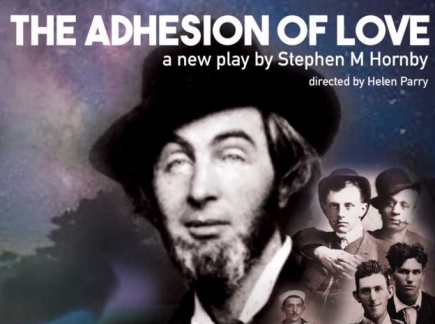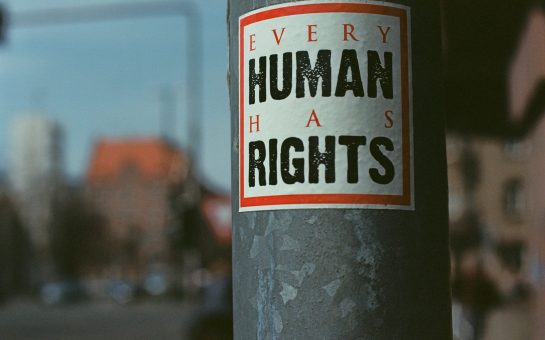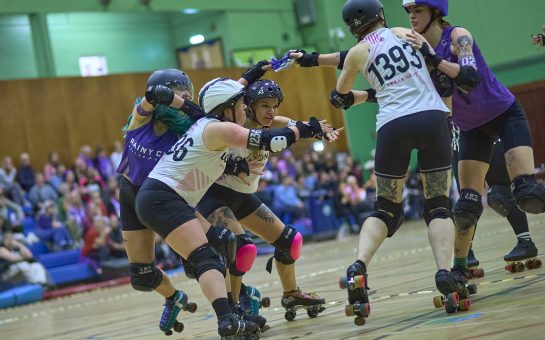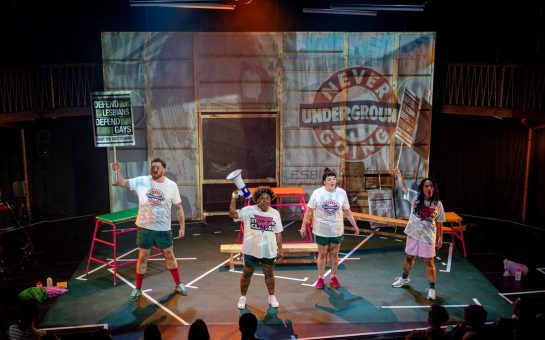Coming to Greater Manchester and Lancashire in February The Adhesion of Love tells the extraordinary story of a group of Bolton fanboys who met their hero – the visionary queer poet Walt Whitman.
The Eagle Street College were a group of working-class men meeting up in a terrace house to read poetry together, and their story is retold as part of LGBT history month by multi-award-winning playwright Stephen M Hornby.
Hornby is engaged in an ongoing project, revealing the hidden history of society’s invisible intersections and uses The Adhesion of Love to bring sexuality into an already documented group, and their astonishing visits to Whitman in America.
“I think there’s a subtext that runs all the way through it and when you look at the history that has been written about all of these guys lives, there is some acknowledgement that this was to do with sexuality.
“There are some tiny little bits of evidence that we’ve got left but mostly that’s skated over whereas I think that’s really at the core of what the group was.
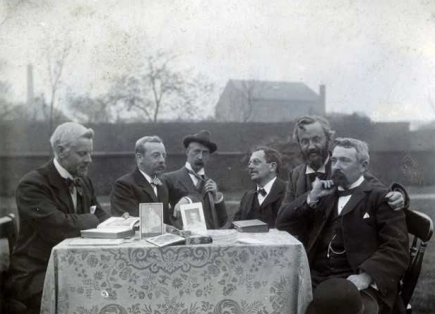
“That’s what I’m trying to do really with the play, re-sexualise it, to revivify the sexuality that I think is at the heart of the group and present it in a way that’s consistent with the historical record.”
By exposing the subtext of history in The Adhesion of Love Hornby hopes to ‘queer history’ and make us all reflect of take-for-granted narratives.
“I think of queering something as the kind of disruptive power that we bring creatively to things.
“To expose the fact that a lot of history…is almost exclusively the stories of white, heterosexual, normally upper-middle-class, privileged men.
“So, it’s not just about disrupting the sexuality of it, but also disrupting the notions of history itself; of what gets recorded and how we’ve taken certain things as just being factual, when in fact they’re very much in contention.”
Using non-representative casting (Waltman is played by a black woman) The Adhesion of Love hopes to interrupt patterns of complacency with unconventional nuances.
“Yes, it is fundamentally about re-establishing sexuality in the characters, but it’s also about messing with notions of accuracy, of race, of class, of time, and geography so that the whole thing becomes this kind of disruptive force.”
Hornby is keen to highlight the extraordinary queer history of the North West and move away from traditional LGBT narratives – one of his previous works featured the true story of a lesbian bus driver who started a protest over being sacked from her job in Burnley.
“We try as much as possible to be away from London finding the stories of how ordinary people lived and struggled with the world in which they found themselves and often became pioneers.
“Not exactly reluctantly but sort of pragmatically…in order to get on with how they lived their lives.
“There’s all these stories, and we keep on uncovering them all around the country, of these ordinary people who didn’t have particularly privileged lives, and often were from very ordinary or working-class backgrounds.
“And yet got themselves mobilised at different points and in different ways to be part of that wider narrative of struggle and resistance for LGBTQ+ rights.
“We have always been there in one form or another and most of our presence is still hidden.
“I do think there’s something where LGBT history has a particular power and resonance for the LGBT community.
“But I do think there’s something broader that other people – people who are just interested in history – want to look at LGBT history because it is so fascinating.
“It’s this hidden world.”
The play is showing at:
Saturday 9 February, 2pm – Burnley Central Library, Burnley – FREE
Wednesday 13 February, 7:30pm – ALRA North, Wigan – £8/£5
Wednesday 20 February, 7:00pm – Martin Harris Centre, Manchester – £9/£6
Thursday 28 February, 7:30pm – New Adelphi Studio, Salford – £9/£6
Saturday 16 March, 2:00pm – Bolton Museum, Bolton – FREE (booking required)
Thursday 21 March, 7:00pm – Bolton Museum, Bolton – £8/£5
Friday 31 May, 7:30pm – Bolton Socialists Club, Bolton – £10
